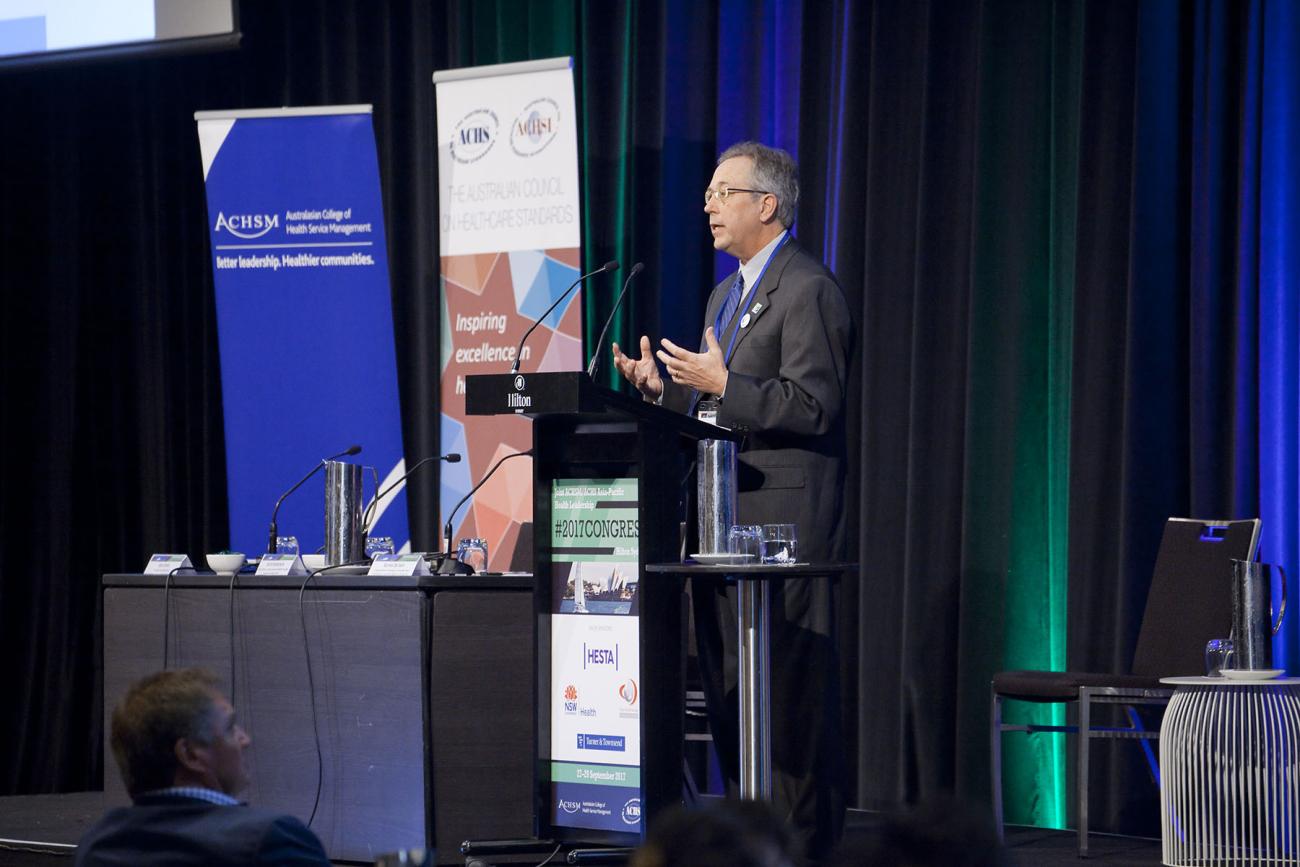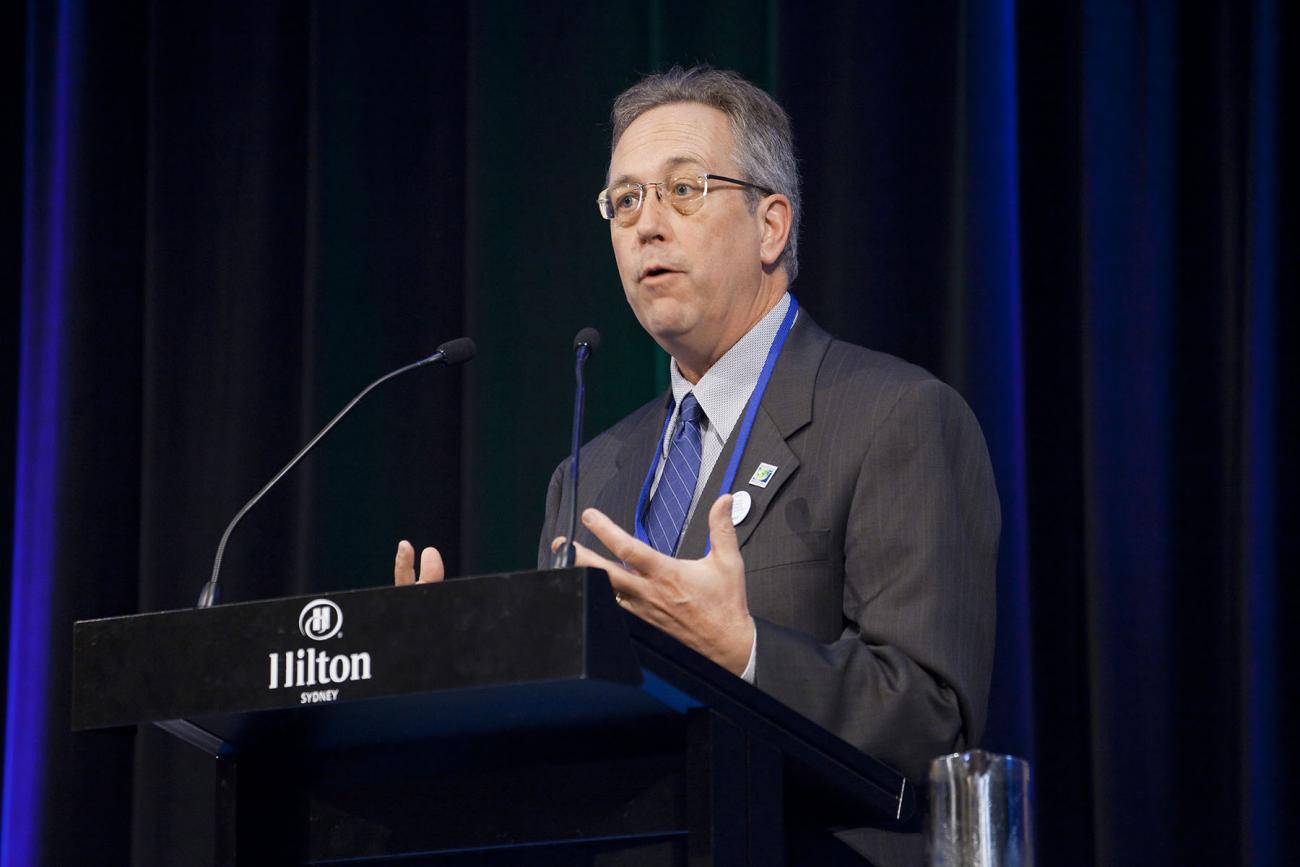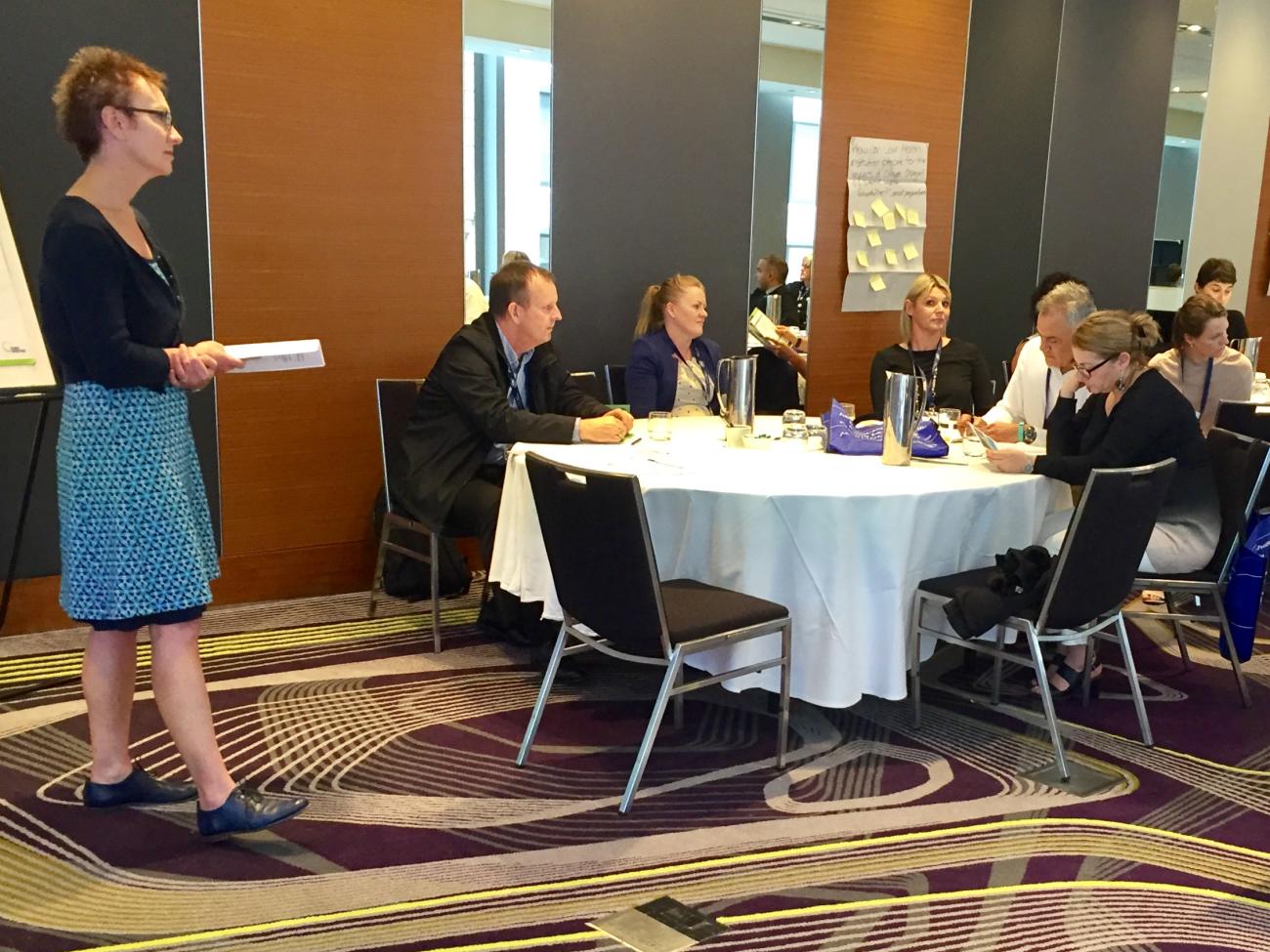Health Care Without Harm participated in the ACHSM/ACHS Asia-Pacific Health Leadership Congress in Sydney that took place on 27-29 September. The Congress, organized by the Australasian College of Health Service Management (ACHSM) and Australian Council on Healthcare Standards (ACHS), is the peak Australasian gathering of health leaders.
Scott Slotterback, Global Green and Healthy Hospitals (GGHH)’s Policy Director) delivered a keynote address entitled “Winds of Climate Change: Preparing for a Cyclone.” He explained, using examples from Australian hospitals, and hospitals around the world, how the health sector is embracing the challenges of climate change, modeling solutions for their communities and saving money as well.
Between 450 and 500 people attended Slotterback’s presentation, nearly all of whom were health care decision makers. Engaged throughout the presentation, the audience was especially interested in the case studies provided by GGHH members. Catherine Chaffey, Chief Executive Officer of the ACHSM said: “I’m personally really pleased to be able to include such an important set of issues that you covered into the Congress.”
"Climate change is a health issue today. As the health sector pursues cost reductions, many are realizing that health care costs can be significantly reduced by promoting a healthy population and addressing the environmental conditions that affect health", explained Scott Slotterback.
Workshop on Climate Change
Following the keynote presentation, Fiona Armstrong, Climate and Health Alliance’s (CAHA) Executive Director; Carol Behne, CAHA’s Sustainable Healthcare Project Officer; and Scott Slotterback facilitated a workshop titled “Health Services in a Changing Climate: Risks, Rewards and Opportunities”. Over 25 health care leaders from a variety of backgrounds participated.
The event outlined key initiatives in Australia and around the world that are building capacity and leadership in the health sector to respond effectively to climate change. It involved experts and leaders in climate change, health policy and advocacy, including national and global leaders from GGHH.
The interactive workshop enabled participants to share ideas, identifying solutions to key questions on reducing emissions in healthcare, strengthening climate-resilience, and engaging with stakeholders. Workshop facilitators helped to guide discussions of small groups, who reported back on their ideas/outcomes and provided examples of real life case studies on how institutions are addressing these challenges and opportunities.
Participants also learned about the campaign for a “National Strategy on Climate, Health and Well – being” for Australia and had the opportunity to hear case studies from hospitals and health systems reducing their greenhouse gas emissions and minimizing their environmental footprint. In addition, they learned about the opportunities and benefits for improving environmental health, saving money and protecting public health through participation in the Global Green and Healthy Hospitals network.
“Feedback from participants at the workshop was very positive – many valuing the extended opportunity to talk to one another about this topic, and at least half the attendees indicating they intended to take action following the workshop”, assured Scott Slotterback.


